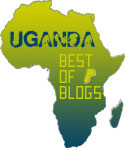GVO Summit, Day 2, Session 1
Today started with an introduction to Rising Voices, the outreach arm of Global Voices. A quick overview:
Session 1: Web 2.0 Goes Worldwide
Moderator: Lova Rakotomalala
Catalina Restrepo, HiperBarrio, Colombia
work through libraries to do new media training
project has united community, helped people make friends and write about their experiences
freedom to say what you want to say -- makes people happier, ability to speak out is directly related to happiness
violence has gone down, area now considered a beautiful, peaceful place
project facilitates integration of neighborhoods in Medellín -- not bordering neighborhoods but very similar, have a lot in common
Collins Dennis Oduor, REPACTED, Kenya
"community theatre" instead of "street theatre" -- "we don't have streets there"
REPACTED uses magnet theatre -- doesn't perform, but trains students to tackle own issues through theatre
open mic rapping -- improv, pick topics from basket
work in schools, prisons, etc.
Rising Voices allowed REPACTED to form group for HIV+ youth in prison, working with IDPs
Cristina Quisbert, Voces Bolivianas, Bolivia
Bloguivianos 2007 -- Bolivian blogger meeting
multiple blog workshops
writing about indigenous ppl in Spanish, now also in English -- enables her to share indigenous culture with English-speaking world
few ppl blogging about indigenous topics, few indigenous ppl blogging at all (even fewer women)
she writes about music, uploads videos
"sad moments": technical difficulties (old equipment, slow internet, etc.); insulting e-mails/comments; some ppl think she is a man
Mialy Andriamananjara, FOKO, Madagascar
founded by 4 bloggers after TED Africa 2007
challenges: few bloggers, expensive internet, electricity issues, blogging gets bad PR -- considered frivolous, something for teenagers/for ppl who want to stand out/want attention
emphasis on community in Madagascar
young, poor, sick not respected
skepticism: ppl didn't understand why you'd blog instead of feeding the poor
networked w/UN youth club, journalism school, peace corps volunteer
slow internet -- hard to upload vid/pics
150 blogs opened in 10 months, blog clubs in 3 major cities, alliance w/Ministry of Education for more digital literacy projects (but lack funding), publish some posts in English-language papers -- these bloggers get stipend
have "converted" some journalists to blogging
female bloggers coordinated reading of Vagina Monologues
one blogger mobilized help for boy born with physical deformity, coordinated medical assistance
learned to encourage bloggers, respect different learning curves
competition not always good, esp. in community-oriented society like Madagascar
comments are important
have "buddy system" -- pair in-country blogger with one in diaspora
future goals: set up new media center, web design workshops, help artisans get online, focus on women
Questions
what do you need? how can ppl help? how do you sustain projects and train so many ppl on such a small budget?
-- REPACTED needs help training ppl in web design, computer literacy; they have camera and are using it to tape weddings/birthdays to make $$
how can other ppl from other parts of the world help amplify the voices of indigenous Bolivians?
-- blogs are a solution, comments and visits help sustain bloggers
how does training work? how do you counter suspicions, address stigma surrounding blogs?
-- rely on networking, friends teaching friends, a lot of support from diaspora
The participatory web has, so far, been limited to the participation of select communities. Thanks to the steady proliferation of broadband connectivity and digital literacy campaigns throughout the developing world, however, some of the most exciting uses of online tools are now taking place in locations where, merely a decade ago, internet access was rare, if available at all. This panel will gather leaders of cutting-edge Web 2.0 initiatives from Colombia, Kenya, Bolivia, and Madagascar who seek to make the global conversation more representative of the global population.
Moderator: Lova Rakotomalala
Catalina Restrepo, HiperBarrio, Colombia
work through libraries to do new media training
project has united community, helped people make friends and write about their experiences
freedom to say what you want to say -- makes people happier, ability to speak out is directly related to happiness
violence has gone down, area now considered a beautiful, peaceful place
project facilitates integration of neighborhoods in Medellín -- not bordering neighborhoods but very similar, have a lot in common
Collins Dennis Oduor, REPACTED, Kenya
"community theatre" instead of "street theatre" -- "we don't have streets there"
REPACTED uses magnet theatre -- doesn't perform, but trains students to tackle own issues through theatre
open mic rapping -- improv, pick topics from basket
work in schools, prisons, etc.
Rising Voices allowed REPACTED to form group for HIV+ youth in prison, working with IDPs
Cristina Quisbert, Voces Bolivianas, Bolivia
Bloguivianos 2007 -- Bolivian blogger meeting
multiple blog workshops
writing about indigenous ppl in Spanish, now also in English -- enables her to share indigenous culture with English-speaking world
few ppl blogging about indigenous topics, few indigenous ppl blogging at all (even fewer women)
she writes about music, uploads videos
"sad moments": technical difficulties (old equipment, slow internet, etc.); insulting e-mails/comments; some ppl think she is a man
Mialy Andriamananjara, FOKO, Madagascar
founded by 4 bloggers after TED Africa 2007
challenges: few bloggers, expensive internet, electricity issues, blogging gets bad PR -- considered frivolous, something for teenagers/for ppl who want to stand out/want attention
emphasis on community in Madagascar
young, poor, sick not respected
skepticism: ppl didn't understand why you'd blog instead of feeding the poor
networked w/UN youth club, journalism school, peace corps volunteer
slow internet -- hard to upload vid/pics
150 blogs opened in 10 months, blog clubs in 3 major cities, alliance w/Ministry of Education for more digital literacy projects (but lack funding), publish some posts in English-language papers -- these bloggers get stipend
have "converted" some journalists to blogging
female bloggers coordinated reading of Vagina Monologues
one blogger mobilized help for boy born with physical deformity, coordinated medical assistance
learned to encourage bloggers, respect different learning curves
competition not always good, esp. in community-oriented society like Madagascar
comments are important
have "buddy system" -- pair in-country blogger with one in diaspora
future goals: set up new media center, web design workshops, help artisans get online, focus on women
Questions
what do you need? how can ppl help? how do you sustain projects and train so many ppl on such a small budget?
-- REPACTED needs help training ppl in web design, computer literacy; they have camera and are using it to tape weddings/birthdays to make $$
how can other ppl from other parts of the world help amplify the voices of indigenous Bolivians?
-- blogs are a solution, comments and visits help sustain bloggers
how does training work? how do you counter suspicions, address stigma surrounding blogs?
-- rely on networking, friends teaching friends, a lot of support from diaspora
Labels: global voices, gvsummit08






